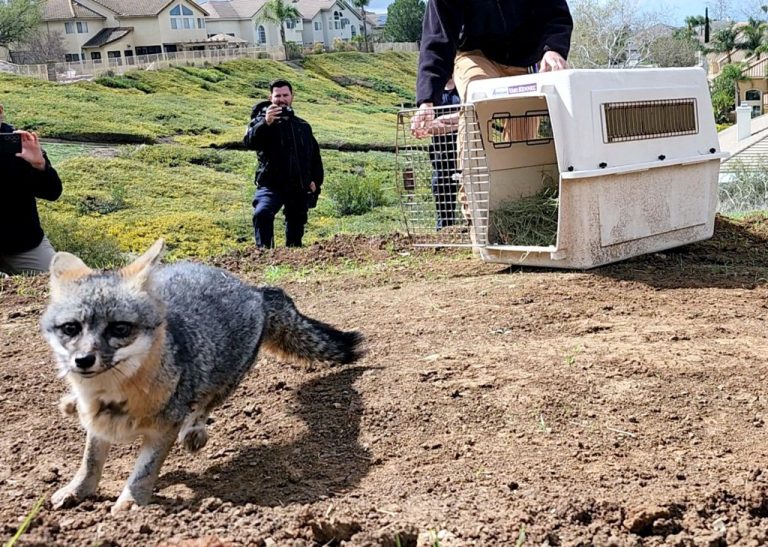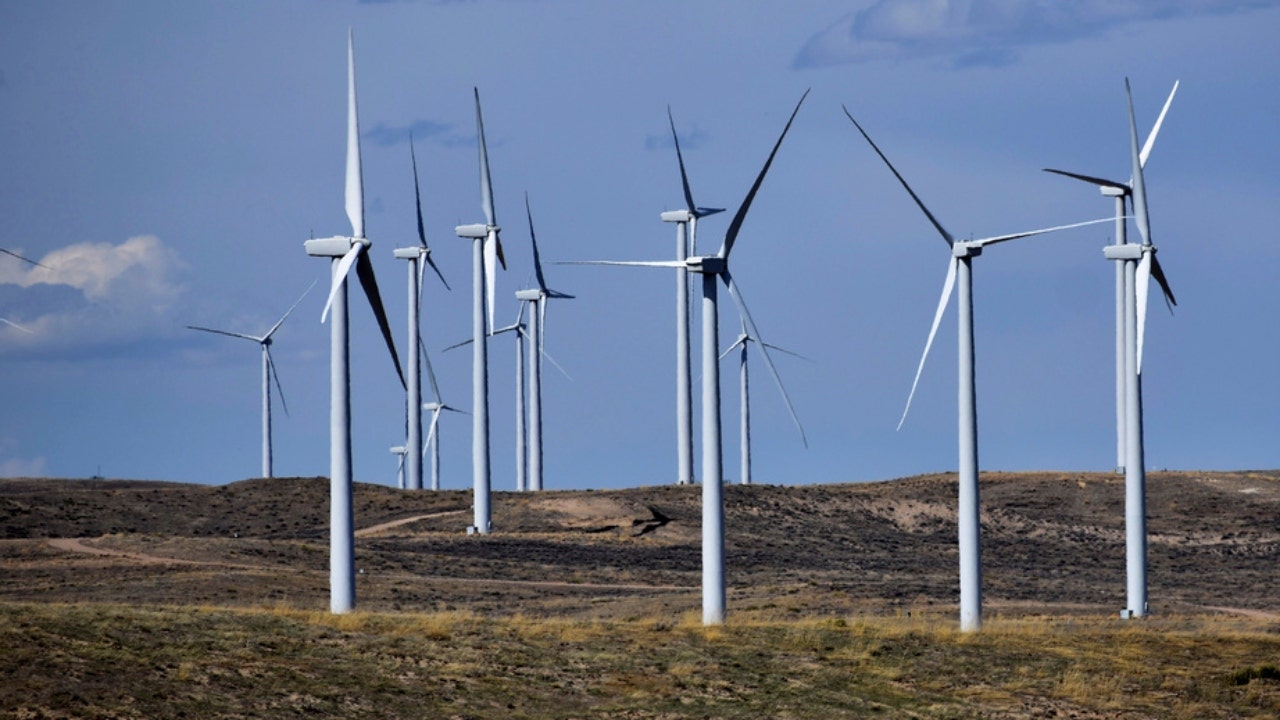
Criminal cases from U.S. wildlife officials over killing or harming protected bald and golden eagles have plummeted in recent years, according to a new report.
This comes even as The Associated Press said officials had ramped up issuing permits that would allow wind energy companies to kill thousands of the birds without legal consequences.
The agency said this was revealed in U.S. Fish and Wildlife Service data it had obtained.
The article said that dozens of permits that were approved or pending would allow around 6,000 eagles to be killed in coming years, citing government documents.
Most of those permits were for wind farms and over half of the birds killed would be golden eagles.
CRITICALLY ENDANGERED CALIFORNIA CONDORS TO RECEIVE VACCINE AFTER A DOZEN DIE FROM BIRD FLU
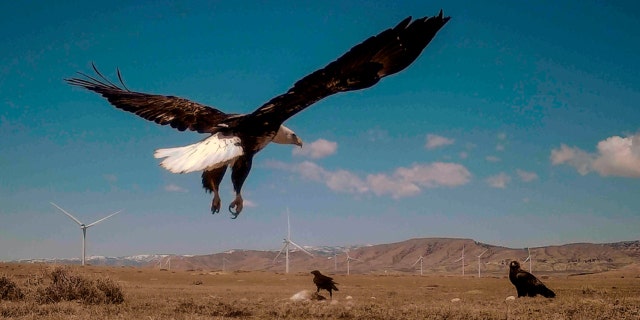
This trail camera still image provided Mike Lockhart shows a bald eagle is seen landing on a trap set by a researcher, on April 30, 2023, near Medicine Bow, Wyoming. A captive eagle used as a lure is seen to the right. The trap was set by researcher Mike Lockhart. The U.S. Fish and Wildlife Service allows some wind farms to kill eagles under a government permit program. (Mike Lockhart via AP)
“They are rolling over backwards for wind companies,” Mike Lockhart, a former U.S. Fish and Wildlife Service biologist, told The Associated Press. “I think they are killing a hell of a lot more eagles than they ever anticipated.”
In pursuit of climate-friendly power development, a pending proposal from the Biden administration would reportedly further streamline such permits.
Wind companies have often pledged to perform conservation work to offset such deaths, including paying money for the eagles – but multiple permits allegedly allow the killing of bald eagles without required penalties.
The report mentioned prosecutions of wind companies that continued killing eagles despite warnings, including major utilities like Duke Energy Corporation, PacifiCorp and NextEra Energy, Inc. Each company reportedly agreed to move toward limiting eagle deaths. All three companies subsequently received or applied for permits that allow accidental killing of eagles without penalty, on the condition that the companies took steps to minimize the tally of deaths. The Associated Press noted that Duke Energy and other environmental groups lobbied the White House to support streamlined permitting.
Duke Energy told Fox News Digital on Wednesday that it does extension mitigation for each and every take and that the company’s legal outcome in a 2013 deal did not reduce or change its rigorous mitigation requirements that were met as they set up detection systems.
Sometimes permits were approved despite opposition from Native American tribes, including for Tucson Electric Power Co. in New Mexico.
DEADLY BIRD FLU THREATENS CALIFORNIA CONDORS ALREADY ON THE BRINK OF EXTINCTION
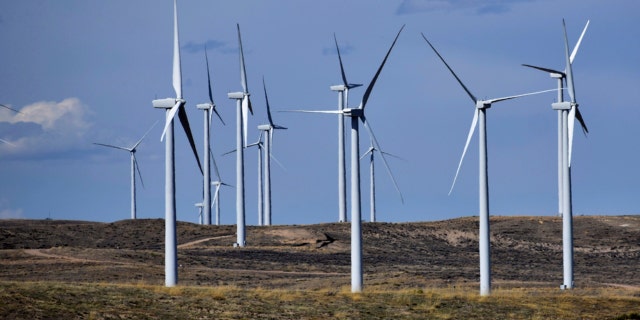
Wind turbines are seen at Duke Energy’s Top of the World energy facility, April 23, 2013, in Rollings Hills, Wyoming. The number of eagles killed at the site increased in the immediate years after Duke was prosecuted for killing eagles last decade, but company officials say the death rate has since fallen. (AP Photo/Matthew Brown)
Federal officials reportedly told The Associated Press that a permit offered the “only available avenue to require … conservation measures.”
The report said that while the Fish and Wildlife Service had initially blamed falling cases on the Trump administration’s decision to roll back enforcement of the Migratory Bird Treaty Act, the agency later retracted that, saying officials were “unable to identify a specific cause as to why violations and investigations dropped.”
The analysis found that only around one in eight cases brought under the Eagle Protection Act from 2012 to early 2022 resulted in fines, probation or jail time.
“Not every criminal investigation substantiates evidence of a criminal violation of federal law,” agency spokesperson Christina Meister said, noting that whether criminal charges are ultimately brought is up to prosecutors and that fines, jail time and other punishments are up to the courts and are outside the wildlife service’s control.
While bald eagle populations have grown over the past decade, there are only about 40,000 golden eagles. Golden eagles need much larger areas to survive and hunt on the same windy plains where companies have put up thousands of turbines in the West.
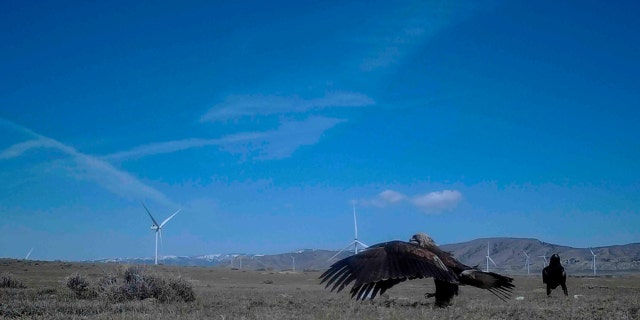
This trail camera still image provided Mike Lockhart shows a golden eagle is seen landing on a trap set by a researcher in this trail camera photograph, on April 30, 2023, near Medicine Bow, Wyoming. A captive eagle that used as a lure is seen to the right. (Mike Lockhart via AP)
Fox News Digital’s requests for comment from the U.S. Fish and Wildlife Service, NextEra Energy, PacifiCorp and Tucson Electric Power were not immediately returned.
CLICK HERE TO GET THE FOX NEWS APP
Duke Energy said since cameras were installed at its Top of the World wind farm, eagle deaths have declined by 82%, and that the system has been very effective at protecting eagles and other large birds.
“The company has served as a convener across industry, environmental organizations and the Fish & Wildlife Service to help find common ground on the general permit development. This has helped propose a framework that’s less complicated and that we are optimistic will result in more industry participation, better data and improved conservation,” the utility said.
The Associated Press contributed to this report.




